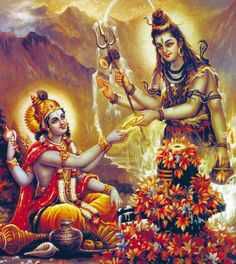"Once upon a time in a faraway land, there lived a Chinese wise man and his disciple. One day in their travels, they saw a hut in the distance. As they approached they realized that it was occupied in spite of its extremely poor appearance.
In that desolate place where there were no crops and no trees,a man lived with his wife, three young children and a thin, tired cow. Since they were hungry and thirsty, the wise man and his disciple stopped for a few hours and were well received. At one point, the wise man asked:
“This is a very poor place, far away from anything. How do you survive?” "You see that cow? That’s what keeps us going,” said the head of the family. “She gives us milk, some of it we drink and some were make into cheese. When there is extra, we go into the city and exchange the milk and cheese for other types of food. That’s how we survive.”
The wise man thanked them for their hospitality and left. When he reached the first bend in the road, he said to his disciple: "Go back, get the cow, take her to the cliff in front of us, and push her off.” The disciple could not believe what he was hearing.
“I cannot do that, master! How can you be so ungrateful? The cow is all they have. If I throw it on the cliff, they’ll have no way to survive. Without the cow, they’ll all die!”
The wise man, an elderly Chinese man, took a deep breath and repeated the order: “Go ahead. Push the cow off the cliff.” Though outraged at what he was being asked to do, the student was resigned to obey his master.
He returned to the hut and quietly led the animal to the edge of the cliff and pushed. The cow fell down the cliff and died.
As the years passed by, remorse for what he had done never left the disciple. One spring day, the guilt became too much to bear and he left the wise man and returned to that little shack. He wanted to find out what had happened to that family, to help them out, apologize, or somehow make amends.
Upon rounding a turn in the road, he could not believe what his eyes were showing him. In place of the poor shack there was a beautiful house with trees all
around, a swimming pool, several cars in the garage, a satellite dish, and on and on. Three good-looking teenagers and their parents were celebrating their first million dollars.
The heart of the disciple froze. What could have happened to the family? Without a doubt, they must have been starving to death and forced to sell their land and leave. At that moment, the student thought they must all be begging on the street corners of some city. He approached the house and asked a man that was passing by about the whereabouts of the family that had lived there several years before. “You’re looking at it,” said the man, pointing to the people gathered around the barbecue.
Unable to believe what he was hearing, the disciple walked through the gate and took a few steps closer to the pool where he recognized the man from several years before, only now he was strong and confident, the woman was happy, and the children were now nice-looking teenagers.
He was dumbfounded, and went over to the man and asked:
“What happened? I was here with my teacher a few years ago and this was a miserable place.
There was nothing. What did you do to improve your lives in such a short time?”
The man looked at the disciple, and replied with a smile:
“We had a cow that kept us alive. She was all we had. But one
day she fell down the cliff and died. To survive, we had to start doing other things, develop skills we didn’t even know we had.
And so, because we were forced to come up with new ways of
doing things, we are now much better off than before.”
Moral :
Sometimes our dependency
something small and limited is the biggest obstacle to our growth. Perhaps the best thing that could happen to us is to push our “cow” down the cliff...the biggest successes people have achieved are mostly outside their comfort zones but purely with their effort zone !!



